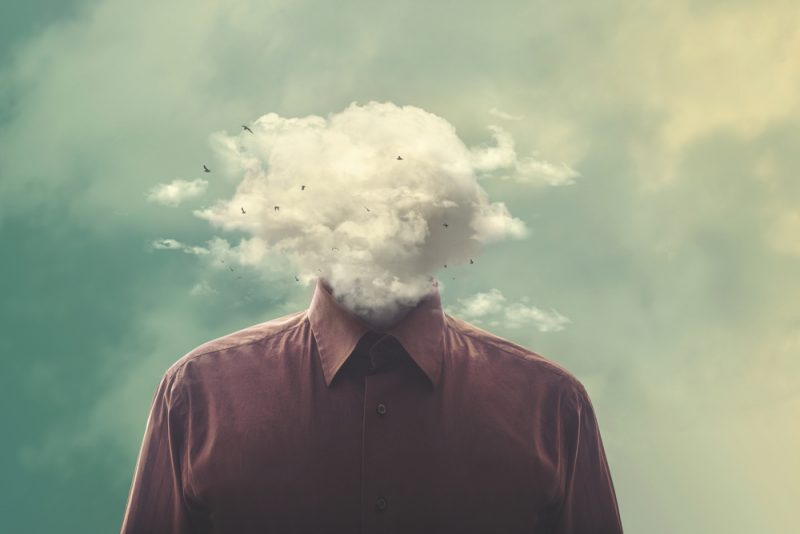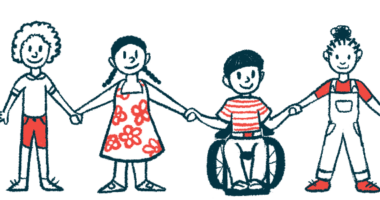The Effects of Guilt on My Body and Mind

fran_kie/shutterstock
Welcome back to “Hidden Truths.” This week I wanted to move away from the style of my first and second columns and discuss how one of the most basic emotions relates to muscular dystrophy (MD) and other chronic illnesses.
Guilt occurs when a person feels regret or shame in response to their actions (or inactions) in a particular situation. The individual may feel that they have gone against a moral standard. The concept of morality is vital because people living with chronic conditions may have different ideas right versus wrong.
A common cause of guilt centers around feelings of responsibility or burden, physical or financial. This may be true for individuals who have the disease or those who care for them.
For example, a parent may feel guilty for bringing a child with a disability into this world. After recognizing the impact of my condition and how it could alter my future, my parents were apologetic. However, I knew I could not let this define me.
Instead, I studied physical therapy, a physically demanding profession, to better myself and provide appropriate treatment to others with physical limitations. I believe that if one explores and turns their weaknesses into strengths, then there are no weaknesses.
I also made this decision because I never wanted to be a burden on others, physically or financially. I wanted to help remove the burden from my family and friends.
A second example is that an individual with a chronic illness may feel a sense of guilt or shame in asking for help. Although I’ve had my diagnosis for over 12 years, I’m still reluctant to ask for assistance, even if I know it can make things easier.
A little over a year ago I fell in the house, and it took me some time to muster the courage to call my friend to help pick me up from the floor. After receiving a stern talking to from him, he made me understand that asking for help is better than not asking and risking injury or worse.
Although I am still very reluctant to ask for help — primarily because I do not want to feel inadequate — I have gotten better at it. I would recommend starting small, whatever that may be, and then slowly building up to something more.
Another common reason for feeling guilt involves committing to or planning for various events. As someone with MD, caring for myself can take a toll on my mental health. I frequently find myself saying “No” to protect or benefit others, and then I feel guilty after the fact. This feeling is not unwarranted, but I must appreciate myself, which includes my functional abilities, and not focus too much on my disabilities.
As alluded to above, I have made the conscious decision not to let a muscular dystrophy diagnosis define me, but rather define what an individual with MD can do. Transitioning from a model of disability to one of function is vital.
While it’s important to appreciate abilities, we must also recognize our limitations. Then we have two choices: Avoid the obstacle, or confront the obstacle. A problem will never go away if you ignore it, so I am facing the future. If I avoid obstacles, I am avoiding the future.
Guilt is often centered around fear, anxiety, depression, sadness, and possibly even anger. Unfortunately, in addition to altering one’s emotional well-being, these feelings can also alter the way a person’s mind and body functions. For example, negative emotions can affect the cardiovascular and gastrointestinal systems. If someone has a chronic illness, their bodily functions are already impaired, so feelings of guilt may have additional adverse effects on their health.
Overall, guilt is a normal feeling, but we must recognize that we can only learn from the past, not change it.
Accepting the past is an integral part of accepting yourself, and it’s vital in understanding your purpose in life. Your life may be different, but different doesn’t have to mean “bad.” Recognizing and appreciating functional abilities and, subsequently, functional limitations is a key component in living contently with a chronic ailment.
***
Note: Muscular Dystrophy News is strictly a news and information website about the disease. It does not provide medical advice, diagnosis or treatment. This content is not intended to be a substitute for professional medical advice, diagnosis, or treatment. Always seek the advice of your physician or another qualified health provider with any questions you may have regarding a medical condition. Never disregard professional medical advice or delay in seeking it because of something you have read on this website. The opinions expressed in this column are not those of Muscular Dystrophy News or its parent company, Bionews, and are intended to spark discussion about issues pertaining to muscular dystrophy.







Savannah J.
Greetings,
What a wonderful article and realistic point of view. Nobody wants to be a burden on anyone, but asking for help as you pointed out is better than putting yourself in a Dire situation which can lead to a bad outcome. Often times parents want to just protect their children, and many times parents do feel guilt that what if we didn’t have a child with Disabilities? It would have saved the child many hardships.it’s amazing and you are a inspiration to others how you overcame your disability had have exceptional an academic achievement and qualifications. But I truly believe god has made each person in this world unique, I know at times mental health can become a problem, but all we can do it stay positive and hope for the best.
Ellen Koch
Thank you so much for your article. My daughter was just recently diagnosed with MD, and as her parent, I have been struggling and overwhelmed with guilt for bringing her into the world with a disability. Your article is a reminder that we must remain strong for her, and for while her life may be different, it does not have to be "bad".